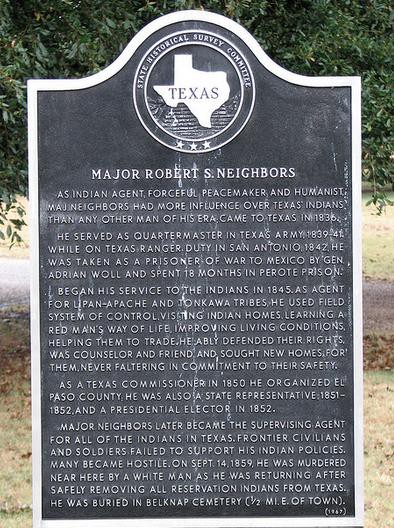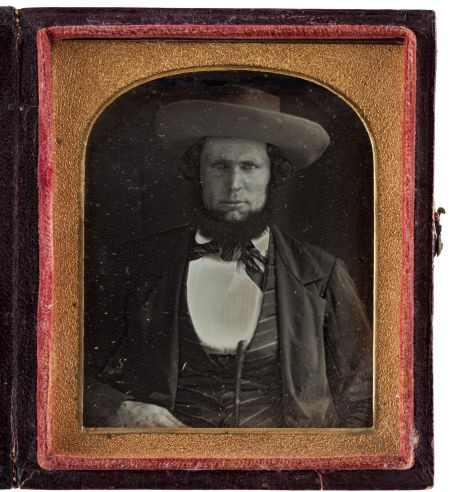Nocturnal Jester Creepy Even For Britain

“A sinister looking clown has been stalking the streets at night in a town north of London, becoming an online sensation and sparking a hunt for the person behind the mask…. While the clown looks terrifying, so far it has only been spotted waving creepily at residents and standing on street corners holding a bunch of balloons and sometimes a teddy bear.”
— It’s the teddy bear part that really does it for me. Maybe it’s the “at night” part. Anyway, this being the world in which we live now, “The clown’s Facebook page has more than 21,000 likes and users have posted numerous photos of it lurking around the town.” [Via]
What Antibiotic Drugs Are The Bacteria In Your Body Resisting Today?
“The prevalence of antibiotic-resistant infections is increasing rapidly in the United States, according to a report released by the Centers for Disease Control and Prevention on Monday. More than two million people in the U.S. get drug-resistant infections annually. About 23,000 die from these diseases that are becoming increasingly resistant to antibiotics in doctors’ arsenals.”
"This Was Prime Time"
by Rachel Pelz
A found poem from the Miley Cyrus FCC complaints.
Being a Christian I’m taking a stand against
using a “Fanatic’s finger” as if it were a phallus.
A lady would never conduct herself like that.
She put her face in a fake butt,
indicating oral sex, dog sex,
acting like a devil,
flicking that tongue —
as daemons do.
May God help this nation,
that whore acted like a bitch in heat.
I would have taken her to Tijuana.
Good Heavens! I’m certainly no prude. But
this was much worse than that disaster with
one of the Jackson girls. Her gestures
have crossed the line into a sick arena —
Sure, I could turn it off?
We should not be subjected to soft porn
during peak hours. She touched the man’s groin
with a rubber hand. Dry humping, licking
the butt of a stuff bear, giggling
her buttock against his penis —
“Twerk” seems to be the word.
Where has censorship gone? The FCC has no teeth anymore —
talk about a paper tiger. Trust me
when I say I will call my Senator, my Congressman.
Penalties should be enforced.
You can say all you want about the stupidity of youth,
but our children deserve better.
The fine for Miss Miley Cyrus, the toddler wearing pigtails:
I suggest twelve months in a convent!
The fine for Miss Miley Cyrus, the little slut:
One million dollars from the network,
payable to the America that I knew.
Let’s show her America is cleaner than that.
The fine for this filth is Miss Miley Cyrus
needs to be spanked.
Rachel Pelz lives and writes in Brooklyn.
New York City, September 15, 2013

★★★★ The avenue shimmered with reflected brightness, and a breeze blew over it. A backhoe heaved steel plates around in the middle of the street, its piston flashing, uncovering a trench. Grains of light showed in the dark edges where the scoop had collaterally torn more asphalt. In the Sheep Meadow, when the balls bounced on the ground, they came up damp and grassy. So did the toddler. The afternoon would be for doing erratic scooter laps around Calder’s Le Guichet on the Lincoln Center plaza, never quite endangering it, and for digging in the dust in the cool artificial grove of sycamores and gravel.
Egg Blue
They say this egg is blue because of “a harmless-to-humans viral infection,” but I think we all know how how these things end up. Well, we had a good run.
Leonard Cohen, "I've Got A Little Secret"
If I am still alive at 78 I hope I have cheap and easy access to a suicide machine. Barring the availability of that option I guess I hope I am neither as physically or mentally agile as Mr. Leonard Norman Cohen is at that age, because it is difficult enough to deal with the anguish and grief even now, while my faculties are still relatively intact; the idea that I could still be contending with them at anything close to 75% power is frightening. I’d just as soon not know. I mean, I’m glad Leonard is there to still turn them out, like this one, on which he has been working for a while, but on a personal level I think I’ll pass, thanks.
Utter Tragedy Of Modern Western Existence Unwittingly Summed Up In 15 Words
“It’s supposed to be a magical place, but visitors to Disneyland Paris are increasingly disenchanted.”
— Maybe Franzen was right.
Bread Good
Let me just add the coveted Alex Balk Endorsement to the Ruis breads noted in this selection of ryes. Get a bag of six small rounds, they are great for breakfast. They’ll give your jaw a workout, but so will kale, and these taste much better.
The Killing Of Neighbors

Hello, would you like to buy something weird? Hammer Time is our guide to things that are for sale at auction: fantastic, consequential and freakishly grotesque archival treasures that appear in public for just a brief moment, most likely never to be seen again.
By the time Robert Simpson Neighbors arrived on the Clear Fork of the Brazos River in Texas, the trouble between the people who lived there and the people who wanted to live there had gotten out of control.
Neighbors had seen it coming. When he first became an Indian agent in 1844, he was shocked to learn his colleagues rarely ventured outside the office.1 They felt no urge to seek out the people for whom they were responsible, to visit their home territories and observe their relationship with the land. He successfully lobbied for a policy of field visits, during which he earned the trust and respect of the Lipan Apaches, Tonkawas, and the Comanche.2
After Zachary Taylor became the 12th President, his Whig party dismantled much of Neighbor’s work. The federal government took control of Indian affairs in 1849, terminating contracts with Neighbors and other Democrats. Frontier encroachment continued, and frustrated Indians in the north retaliated.
Neighbors had lost his job, but would not be silenced on the issue, particularly as one of the rare whites who spoke Comanche.3 He found a voice on the Fourth Texas Legislature, sponsoring an 1852 bill that paved the wave for the establishment of Indian reservations. In 1853, Franklin Pierce was elected president; Neighbors was named supervising agent for the Texas Indians soon after.
In his new capacity, Neighbors came to rely on the United States army. He had just returned from Northwest Texas, where he rode alongside Captain Randolph B. Marcy in search of reservations.4
But he could not rely on them entirely. The Texas Legislature had allocated 23,000 acres, along the Brazos river, for the establishment of three reservations, and it was Neighbors who had convinced tribes to move there, promising good relations with the frontier citizens. Officers from Camp Cooper and Fort Belknap failed to support his efforts, or intervene in increasingly violent interactions.
As soon as the tribes arrived, local settlers accused them of marauding across the territory, stealing horses, equipment, and other property. They offered little evidence that these crimes were perpetrated by their new neighbors, rather than outliers. By the time they began attacking the reservations, Neighbors had pressured a dismal number of federal troops to join him in forming a line of defense.
He tried to negotiate among the settlers, but that only led to death threats. It became clear he could no longer guarantee his own safety, let alone the tribes he sought to protect. The only option he could offer was outside of Texas in “Indian Territory,” land of varying worth set aside by the United States Government. With the aid of troops, he soon led the Penateka Comanche, Tonkawa, Caddo, and Delaware tribes to a new agency in Wichita, Kansas.5
After the long trek, Neighbors expected to return to San Antonio, where his wife, Elizabeth, and their two sons were waiting. He had not been home in some time, and was eager to see his family, but there was just one stop to be made near Fort Belknap. This was a village that had not yet forgiven him for denying their retribution, but he returned in earnest to speak with people. He was deep in conversation when Edward Cornett, still smarting over his protection of the Comanche, sneaked up behind him with a gun.6

Robert Neighbors was buried in a civilian cemetery at Fort Belknap. Texas erected a memorial marker located about 111 miles west of Fort Worth in his honor. A sixth-plate daguerreotype, circa 1847, mounted in a leatherette case, is now up for sale at Heritage Auctions. It has an estimate of $10,000–20,000. The current bid is $3585.00.
1. He became an Indian agent in 1844, after spending nearly two years as a prisoner of Mexican General Adrián Woll. He had been forcibly marched south on September 11, 1842, along with 40 other Texas Rangers.
2. When the commissioners of the United Sates and the Comanche met near Waco in 1946, Neighbors was asked to be on the council. A year later, he was once again present for the Comanche when they met with German colonists on the San Saba River.
3. Neighbors’ general attitude towards the Indians was considered “controversial,” which means that he felt an obligation towards them that exceeded his own role. It is possible this was influenced by his own experience under a guardian. When Neighbors was just four months old, his parents died, most likely from smallpox. Virginia planter Samuel Hamner oversaw the orphan’s education, but the intimacies of that relationship are largely unknown. Neighbors left Virginia at the age of 19, and by all accounts, he did not return.
4. In 1859, the Department of State published Marcy’s book, The Prairie Traveler: A Handbook for Overland Expeditions, with Maps, Illustrations, and Itineraries of the Principal Routes between the Mississippi and the Pacific. The book is believed to have played a significant role in overland migration, and it is clear that Marcy’s positive interactions with various tribes, offering detailed explanations of their battle tactics, hunting techniques, language, portable lodges, and so forth.
5. Most of these tribes had a proven track record of loyalty to settlers, and had been allies of the Texas Rangers.
6. Texas considered the eradication of Indians from the Brazos River a victory, and the army and Texas Rangers were encouraged to venture beyond state lines, including offensives against Comanche in Oklahoma and Kansas. At the beginning of the Civil War, various treaties were signed with the promise of peace and goods, but the Comanche never received either. When many men left Texas to fight the Confederacy, the Comanche began a series of raids intended to push the settlers back.
Alexis Coe’s work has appeared in the Atlantic, Slate, The Millions, The Hairpin, SF Weekly, The Toast, and other publications. She holds an MA in history, and was a research curator at the New York Public Library. Photo of memorial marker by “QuesterMark.”
Goat Weeked
It is Goat Week at Modern Farmer, and they have a LIVE, STREAMING GOAT CAM. I don’t want to be a downer, but the way this week is looking already — Early! On a Monday! Sweet Christ! — this may very well be the brightest part of it, so I guess keep a tab open and ready.
